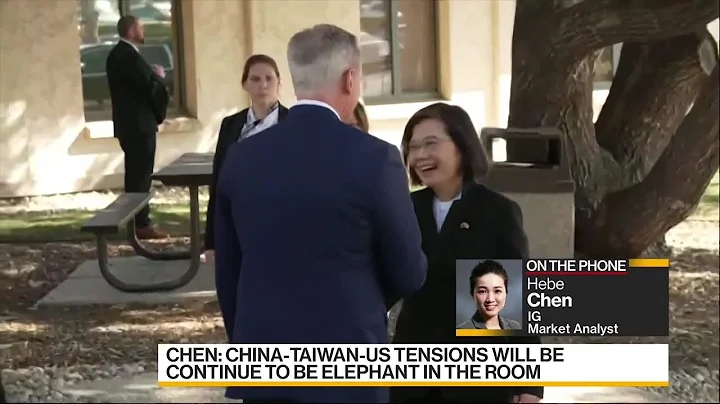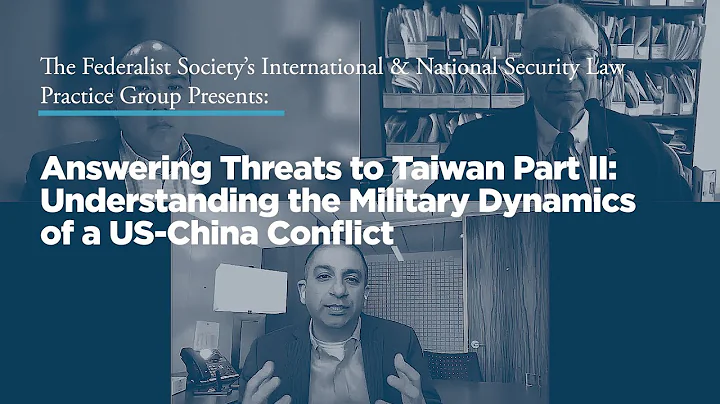When it comes to the Taiwan issue, the United States has always only provoked friction, created confrontation, played the "Taiwan card" in various ways, and tried every means to "add obstruction" to mainland China. However, former U.S. Secretary of Defense Robert Gates actually "offered advice and suggestions" for cross-strait reunification for the first time.
According to local media citing foreign news, on June 24, local time, Gates talked about the Taiwan issue while attending a program. He said that although the current cross-strait situation is quite tense, the mainland will not rashly choose to attack Taiwan with force. The reason is that the People's Liberation Army's amphibious warfare capabilities have yet to be developed, and the cost of attacking Taiwan with force is too high. This is consistent with the mainland's consistent position. The policy of "peaceful reunification" is not consistent.

When someone asked at the scene whether the mainland would take the opportunity to take action against Taiwan, considering that the situation between Russia and Ukraine has become a stalemate, Gates reiterated that it was unlikely that the mainland would use force to regain Taiwan. In comparison, the mainland can use cyber offensives and economic measures to put tremendous pressure on the Taiwan authorities and make them succumb without firing a single shot.
Although it is not uncommon for former senior U.S. officials to express opinions on the Taiwan issue, it is quite rare for Gates to assume the position of peaceful reunification and "make suggestions" for the mainland to regain Taiwan.
Gates's argument reminds me of similar remarks made by Taiwan Straits Exchange Foundation director Peng Yingang at the end of March. Peng Yingang strongly criticized the Taiwan authorities' frequent provocations to the mainland and various measures to create cross-strait confrontation, claiming that if the Taiwan authorities misjudge the situation, it will inevitably trigger cross-strait conflicts, and only the Taiwanese people will suffer.

Peng Yingang said that if the mainland intends to take over Taiwan, it only needs four steps to land on the island without even using a single soldier. According to Peng Yingang's expectation, the mainland can use high-precision missiles to attack Taiwan's military facilities and paralyze Taiwan's armaments; secondly, it can destroy the island's infrastructure and stop the island's economy without harming the people on the island; thirdly, it can damage the island's economy in the Taiwan Strait. Implement a blockade to prevent food and energy from entering the island; finally, when the Taiwan authorities are powerless, just choose the appropriate time to negotiate.
Gates and Peng Yingang's remarks are all stating an indisputable fact. If the mainland is determined to contain Taiwan, it does not even need to mobilize troops. It only needs to carry out targeted attacks on the facilities on the island. This also highlights the current power gap between the two sides. Big, the DPP's so-called tactics of "rejecting reunification with force" and "relying on foreign countries to seek independence" are completely delusions.

In view of the current increasingly tense situation across the Taiwan Strait, calls for "military reunification" are common, and many progressive people on the island have spoken out on the topic of cross-Strait reunification. A few days ago, Kuomintang review member Zhang Yazhong said that if he had the chance to be elected mayor of Kaohsiung City, he would consider building the city into a "war-free and peaceful zone." In short, Kaohsiung will not participate in any armed activities against the mainland, nor will it respond to the DPP authorities' attempt to "use force to seek independence."
In response to the mainland's recovery of Taiwan, Chairman of the US Joint Chiefs of Staff Milley once stated with great seriousness that the People's Liberation Army may launch activities to regain Taiwan in 2027, the centenary of the founding of the army. Of course, this is just a conjecture made by the United States with evil intentions. It is intended to stir up cross-strait tensions and accelerate arms sales to Taiwan, thereby realizing its evil intention of "using Taiwan to control China." It does not have any meaning in itself.

We are accustomed to use "cross-strait reunification" to describe the Taiwan issue, rather than the crude and arrogant term "attacking Taiwan with force." The initiative on the Taiwan issue has always been in the hands of the mainland. Under the "One China" principle, " one country, two systems " is the basic policy for dealing with the Taiwan issue. The mainland is always willing to strive for peaceful reunification with the greatest sincerity and best efforts. However, the mainland also has a bottom line when it comes to the manipulation of external separatist forces and the provocations of stubborn "Taiwan independence" elements. We are willing to use our sincerity and efforts, and we also have the determination and courage to fight vigorously.





















